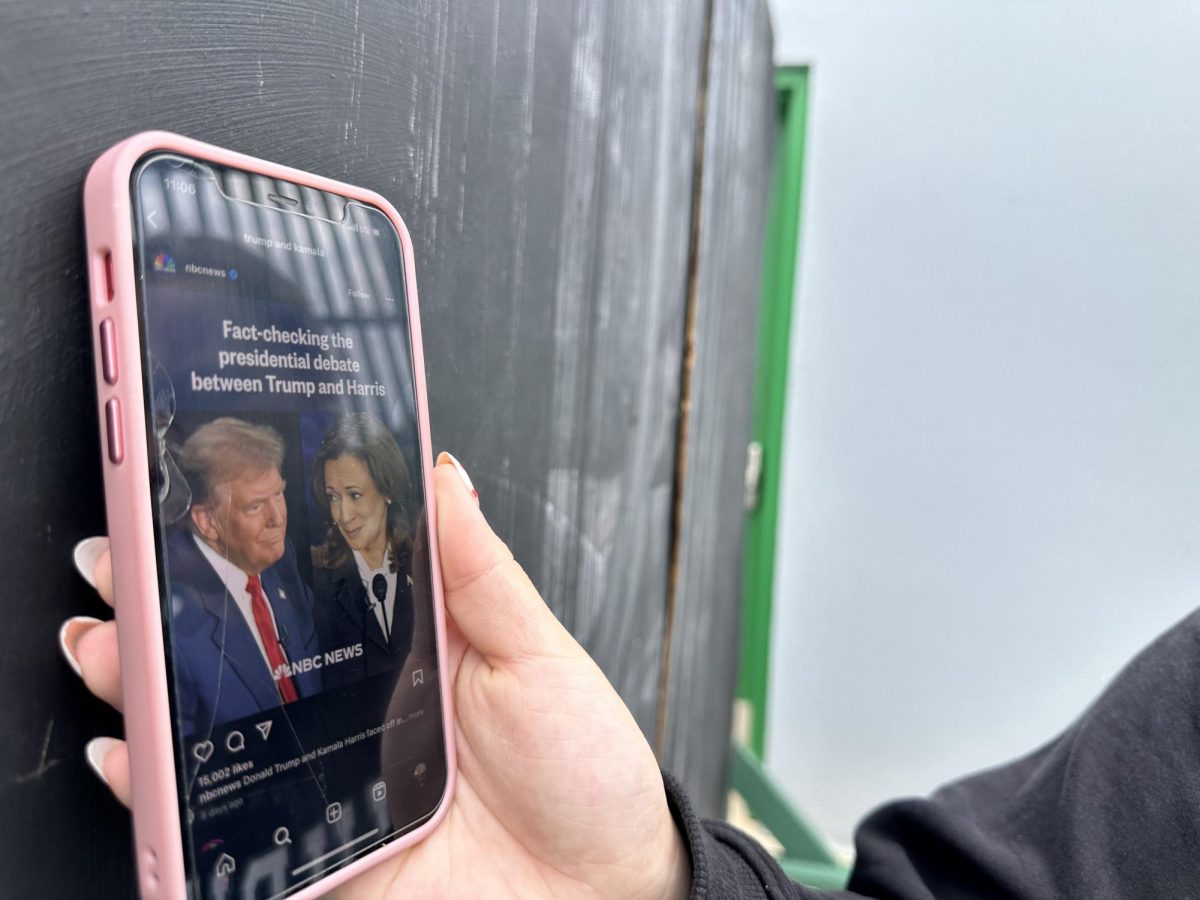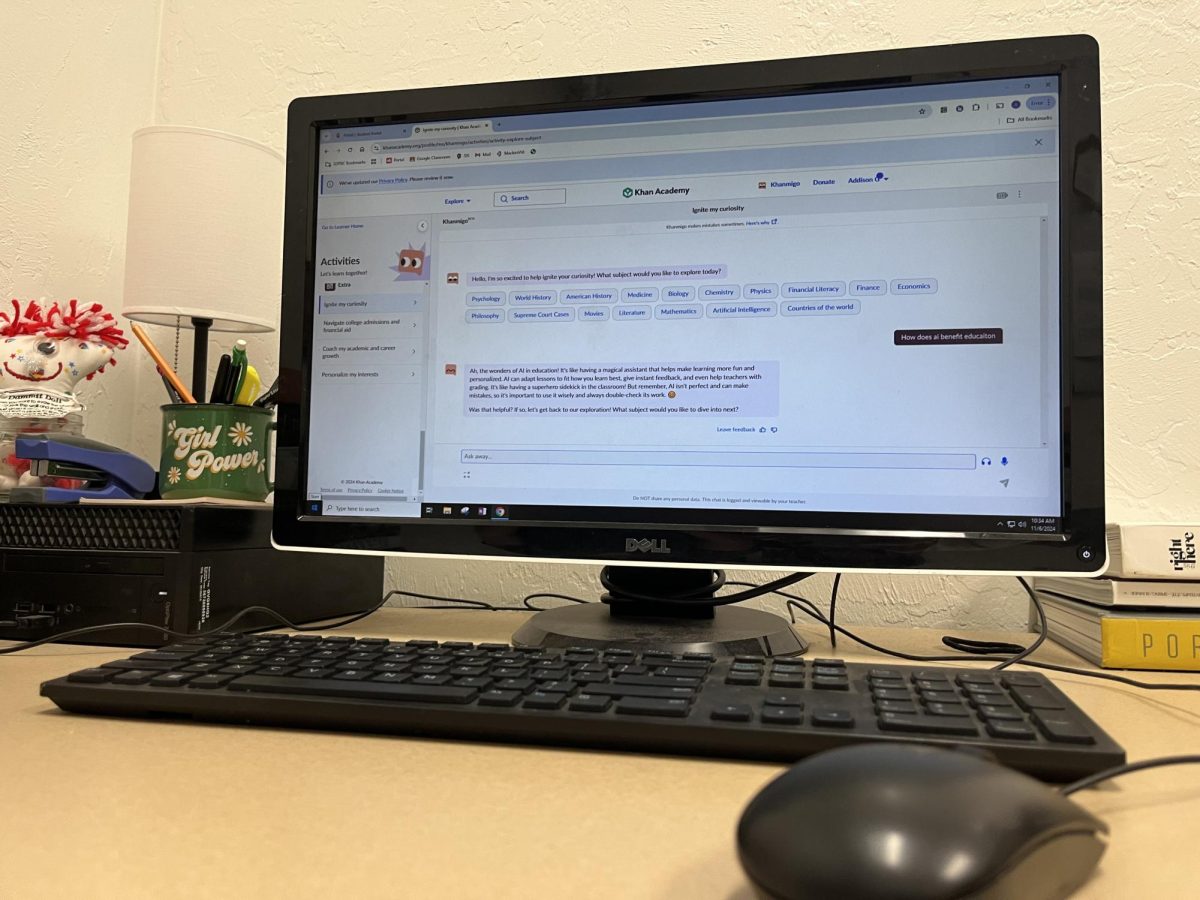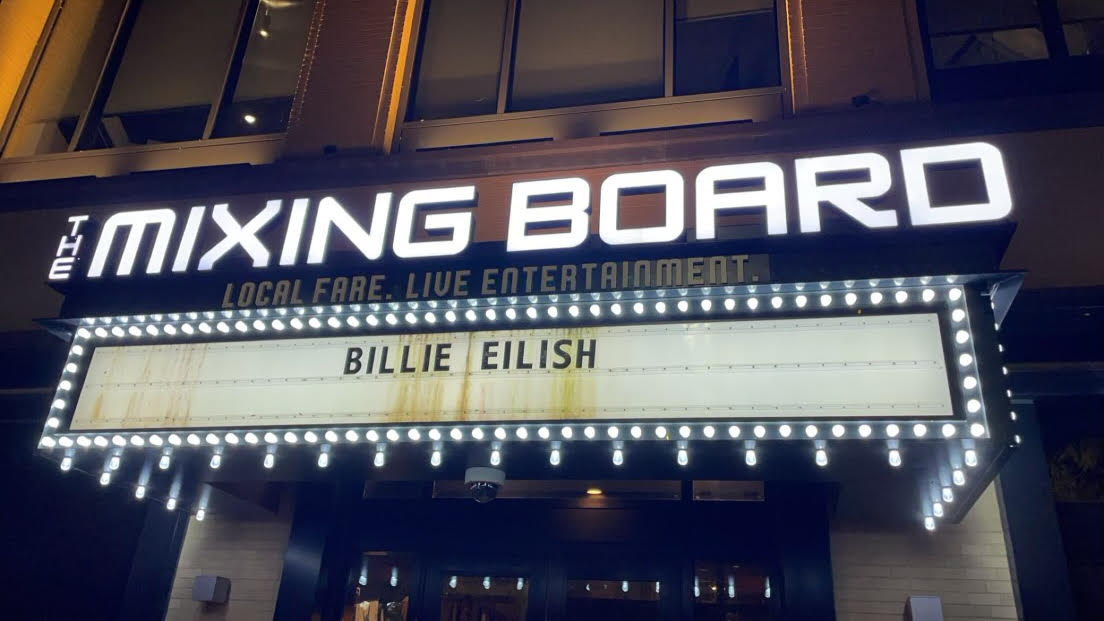With the historic 2024 presidential election, the younger generations’ exposure to politics has been made increasingly prominent through social media.
Kamala Harris, democratic presidential candidate, took over for President Joe Biden on July 21, 2024, following Biden’s resignation from the 2024 Presidential Election race. Harris is the first woman of color ever to be atop of a major party ticket, running with her vice presidential pick, Tim Walz. Trump has remained the opposing candidate, still running alongside his vice presidential pick, JD Vance.
“I really think that people have taken to social media with the approach of this election to spread awareness about both parties and their candidates,” Jordan Weinbaum, senior, said.
With this new exposure to the election, our generation has taken a humorous approach, bringing light to political involvement and also allowing ways for these topics to be approached in a relatable manor.
“I personally am a huge fan of the sense of humor that our generation has made of the presidential election and officials. I think humor is one of the big ways our generation communicates and kind of it really gets through to our generation,” Mia Barrows, junior, said.
Although there’s humor being spread on these topics, there’s also a plethora of access to useful information.
“A lot of information is truthful and even if it’s not, even hearing anything about the election kind of sparks interest within people. That inspires them to maybe do their own research; to look into these topics more so then they would if they were completely unaware about,” Barrows said.
In regards to specific social media accounts taking on this comedic response, the Harris Headquarters (HQ) account has caught onto this trend as well. The HQ account and Trump’s “update” X account both notify the public on social platforms. These updates focus on informing the world on the most important current news events. Some of these posts take on a joking manner, relating to younger demographics.
“Kamala HQ was also able to take a clip of Kamala Harris that turned into a meme and use it to their own benefit which attracted many young people and garnered lots of interest and support for her candidacy,” Weinbaum said.
With the memes and humor in media being prominent, the trends shown have reflected onto the younger demographic.
“The way that the social media accounts have been able to keep up with the trends allows the younger generation to kind of relate and feel seen by the campaign. For example, when “Brat” by Charli XCX and “brat Summer” were trending over the summer, Kamala HQ was able to embody those trends in such a graceful way,” Weinbaum said.
These accounts allow for both information and outreaching, benefitting the younger audiences who could be involved in the voting process.
“I think that the accounts actually are really valuable in getting people to care about topics that otherwise might be considered boring. People are just not interested in it because a lot of people are like ‘I just don’t do politics’,” Barrows said.
While our generation continues involvement in the latest issues and the importance of voting, there’s often a disconnect between important facts and our society.
“Sadly I see less interest in politics than 20 years ago.A lot of young people are simply not engaged, social media or not,” Randall Weatherdon, US Government teacher, said.
With the heightened media exposure, there’s also more access to the reasons people in society are voting the way they are.
“At the end of the day, people will vote with their wallets. If they are doing worse than four years before, they will start looking for someone new,” Weatherdon said.
Within social media, cautions towards the possible misinformation online is crucial to be aware of for the safety of the public.
“I do believe that there are opportunities for political education on social media when it comes to the upcoming election, but there is still misinformation in many places and on many platforms,” Weinbaum said. “After a while, it becomes difficult to distinguish what statements are real and which are false. Without any correction of misinformation or warnings, the so-called “education” we find in social media when it comes to politics could be misleading,” Weinbaum said.
It’s important to sort through the media for the information which brings us necessary knowledge in terms of the upcoming polls.
“Do your own research and do not rely on any form of social media to do your own thinking,” Weatherdon said.
For more information on the 2024 election, visit FEC.GOV or USA.gov to receive information on where to vote, information on the elected officials and information regarding the election process.








